Remembering: Jack Lenor Larsen
Jack Lenor Larsen, no date.
More than once, textile designer and scholar, weaver, businessman, author, craft ambassador, art collector, and world traveler Jack Lenor Larsen was quoted as saying, “I enjoy doing what I don’t know how to do.” That curiosity and resistance to limits made him peerless among 20th century textile innovators. He died December 22, 2020, at the age of 93 at his home at LongHouse Reserve.
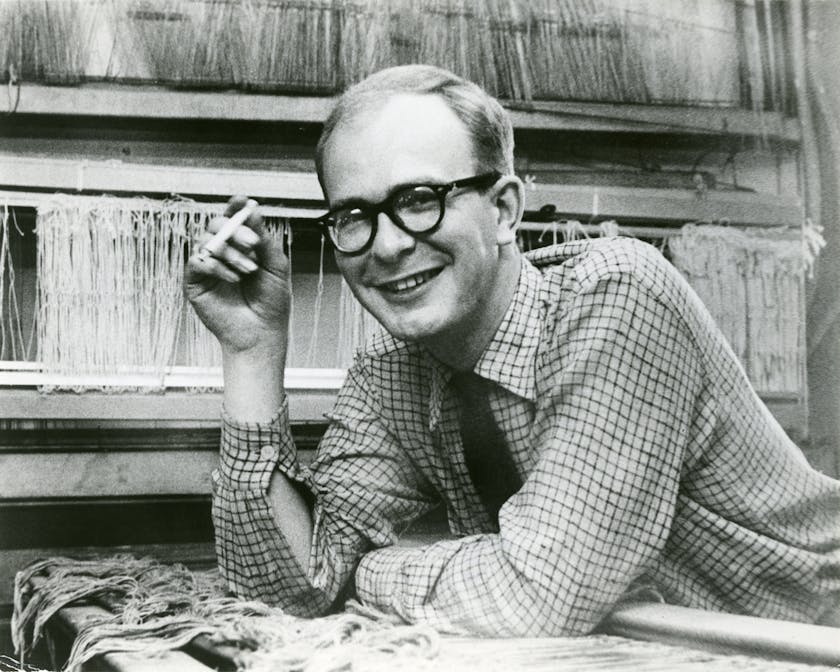
Jack Lenor Larsen, no date.
Larsen, whose work resides in collections and museums around the globe, was equally adept at cutting-edge fabric design that captured his era’s expansive energy and at technical advancements. He gained renown for his handwoven natural fabrics with random repeats, became the first to create stretch upholstery and to find a way to print on velvet, and invented numerous industrial fabrics, including the first specifically for airline use. Frank Lloyd Wright—who bought 200 yards of fabric for Taliesin—Pan American Airways, and Marilyn Monroe were among his clients.
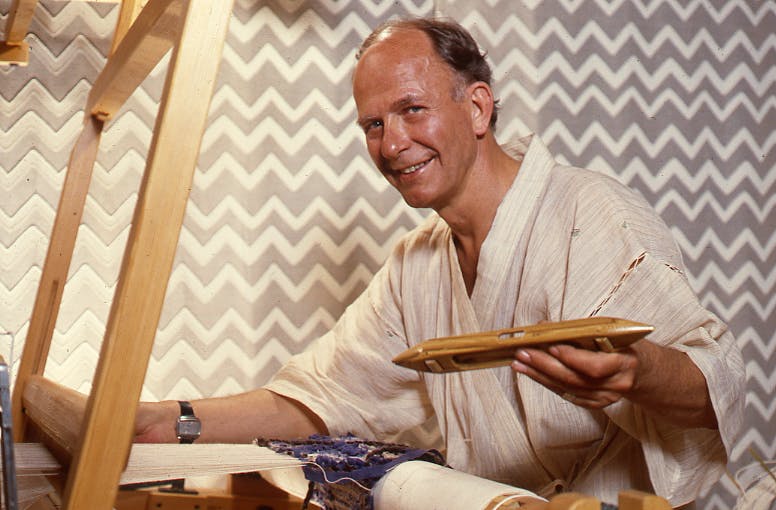
Jack Lenor Larsen, 1980. Photo: Wolfgang Hoyt.
Larsen was born in 1927 in Seattle. His father was a building contractor, and Larsen initially studied architecture. But a weaving class changed the course of his life.
"It had horizontals and verticals, like architecture, and was dependent on materials and light and shadow, but I had real yarns and real color and real structure,” Larsen told the New York Times in 1998.
He moved to Los Angeles to focus on fabric design, then to Michigan, where he received an MFA from Cranbrook Academy of Arts in 1951. He went on to New York City, where in 1952 he started the eponymous design firm that eventually had production centers and showrooms all over the world.
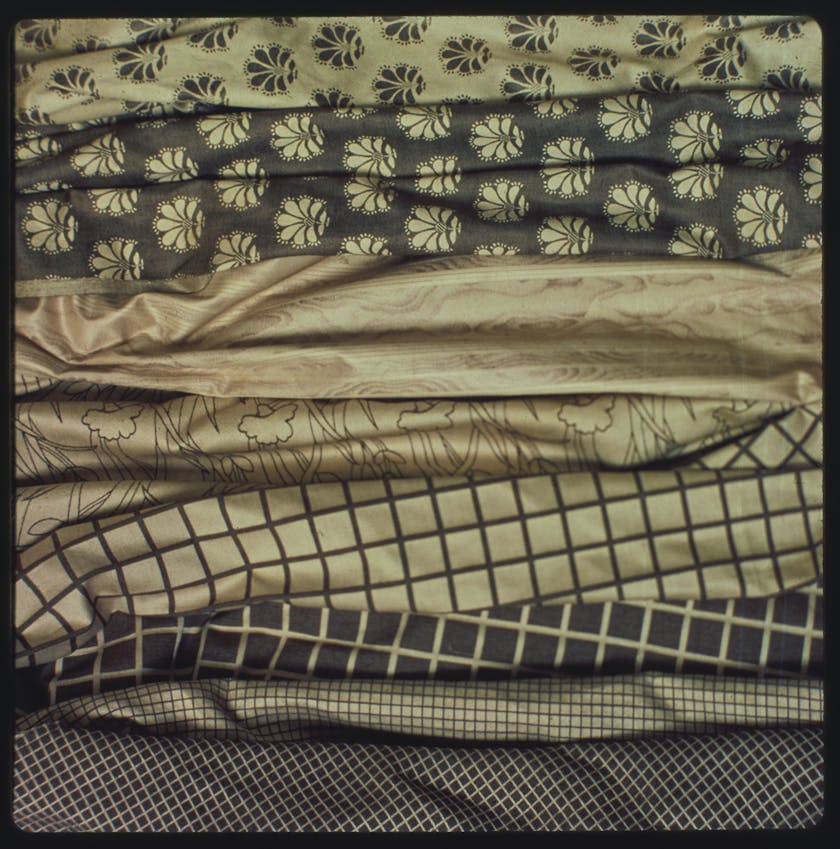
Jack Lenor Larsen, The Graphics.
Although Larsen is most closely associated with the midcentury modern, architecturally inflected aesthetic, he was deeply inspired by textiles he encountered while criss-crossing the world. “Under the aegis of the US State Department, I worked throughout Southeast Asia in the late fifties to help Taiwan and Vietnam achieve exports and jobs,” he told New York magazine in 2007. “I was invited to Haiti, Morocco, and Colombia and, ultimately, some 90 countries.” He made friends wherever he went, giving him access to local artisans whose work he could study, and opening doors to new audiences for their work through his own.
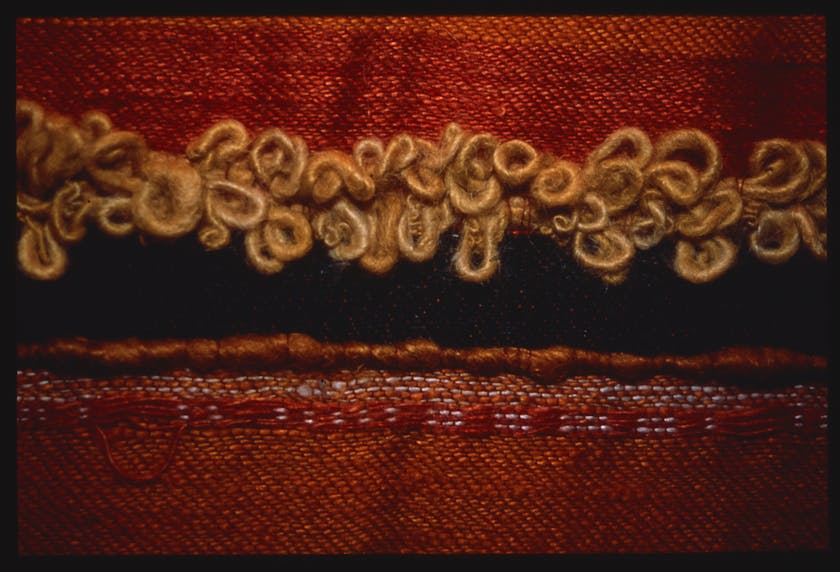
Jack Lenor Larsen, Theater Curtain.
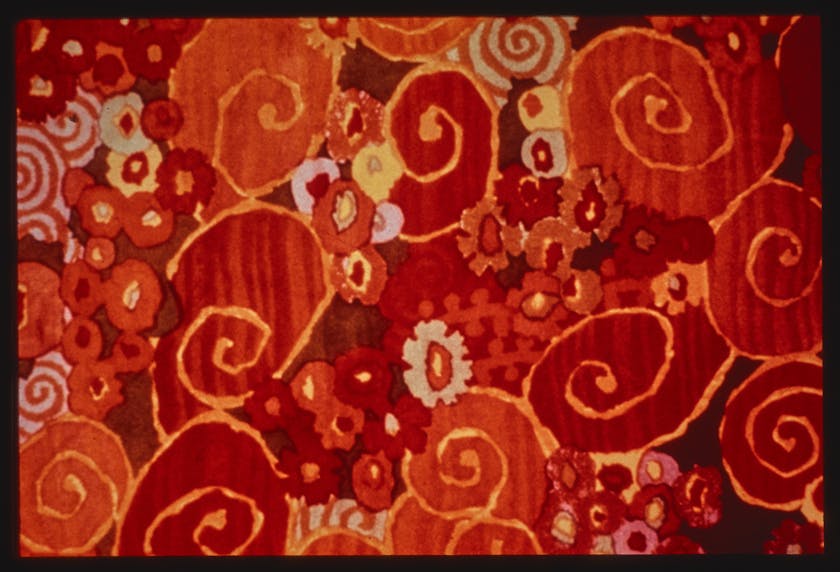
Jack Lenor Larsen, Samarkand.
LongHouse, his home in East Hampton, New York, is a 16-acre garden and arts center filled with the art he collected throughout his life by the likes of Wharton Esherick, Yoko Ono, and Dale Chihuly, the latter originally a weaver whom Larsen urged to study glassblowing.
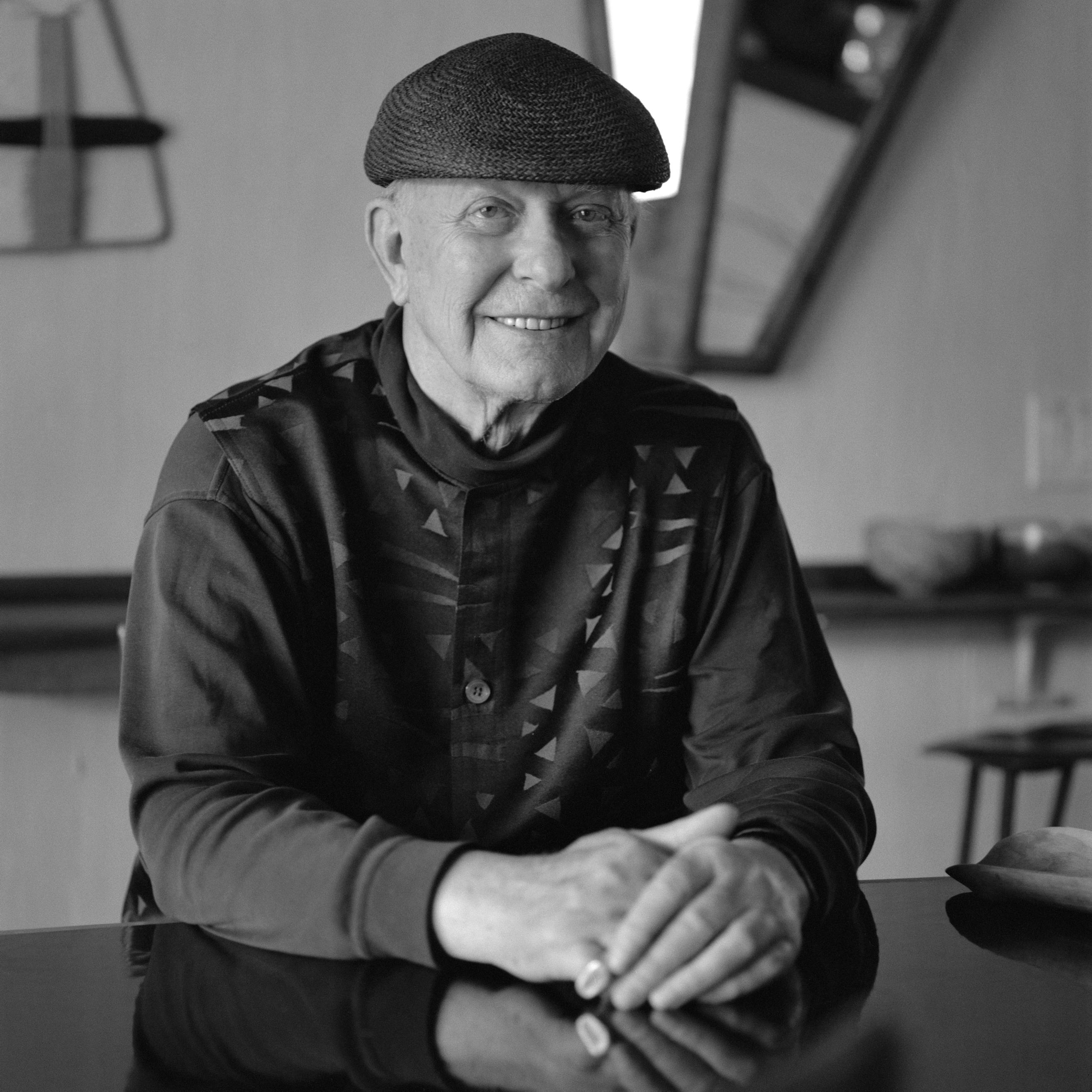
Jack Lenor Larsen, 2008.
Larsen was a monumental figure in the history of the American Craft Council. He was instrumental in launching the ACC Awards program in 1970. After serving on the Board for nearly two decades, he was named President of the ACC from 1981 to 1989. He was inducted into the ACC College of Fellows in 1978, and was awarded the Gold Medal in 1996.
Larsen received numerous other awards, including a Gold Medal from the American Institute of Architects (1968); Honorary RDI award from the Royal Society of the Arts, London (1983); and the Design Award for Lifetime Achievement from the Brooklyn Museum (1993). He was granted honorary doctorates from Parsons School of Design, the Fashion Institute, and the Rhode Island School of Design. His fabrics reside in such institutions as the Metropolitan Museum of Art, the Museum of Modern Art in New York, the Minneapolis Institute of Arts, the Art Institute of Chicago, and the Victoria & Albert Museum in London.
Experience more of Jack's career
Visit the ACC Library Digital Collection to view a filmed interview with him in 1972.

